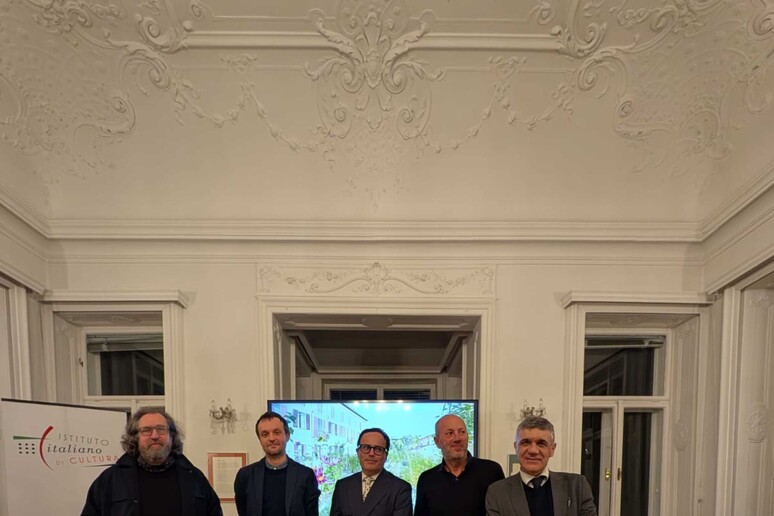On the occasion of the 9th Day of Italian Design in the World, the Italian Cultural Institute in Vienna yesterday hosted the event 'Inequalities. How to recompose the fractures of humanity', organised in collaboration with the Italian Embassy in Vienna and the local Ice office.
Architects Francesco Fresa and Michael Obrist discussed the role of architecture and design in reducing the impact of inequalities and increasing the well-being of individuals in everyday life, focusing on examples of urban transformation, new models of sharing and sustainability as a form of progress.
In particular, ten years after the Milan Expo, dedicated to the theme 'Feeding the Planet; Energy for Life', the two architects focused on the progress in the way we feed ourselves and use energy, and how architecture and design can actually help us to adopt better behaviours.
The event was attended by an audience of designers, architects, students, industry representatives, professionals and enthusiasts. A recording of the meeting will soon be made available on the YouTube channel of the Italian Cultural Institute in Vienna.
The Italian Design Day in the World (IDD) was created both as a driving force behind the Salone del Mobile in Milan (scheduled from 8 to 13 April) and as a moment to enhance and promote the importance of design for Italy. It is now an annual event with a transversal profile involving Maeci, the Ministry of Culture, Ice, the Italian Cultural Institutes and the Association for Industrial Design (ADI).
This year's Italian Design Day also benefits from the synergy with the upcoming International Exhibition of the Milan Triennale, which will take place from 13 May to 9 September, entitled 'Inequalities. How to mend the fractures of humanity', which inspired today's meeting.
Francesco Fresa is co-founder of the Milan-based studio PiùArch, which proposes a concept of contemporary architecture that respects the resources of the planet today and in the future. For Expo Milano 2015, PiùArch built the pavilions of Enel and Caritas.
Michael Obrist is a partner in the feld72 studio, which operates on the borderline between architecture, applied town planning and art. The work of feld72 is characterised by a socially responsible, innovative and sustainable approach to architecture and town planning.
ALL RIGHTS RESERVED © Copyright ANSA











